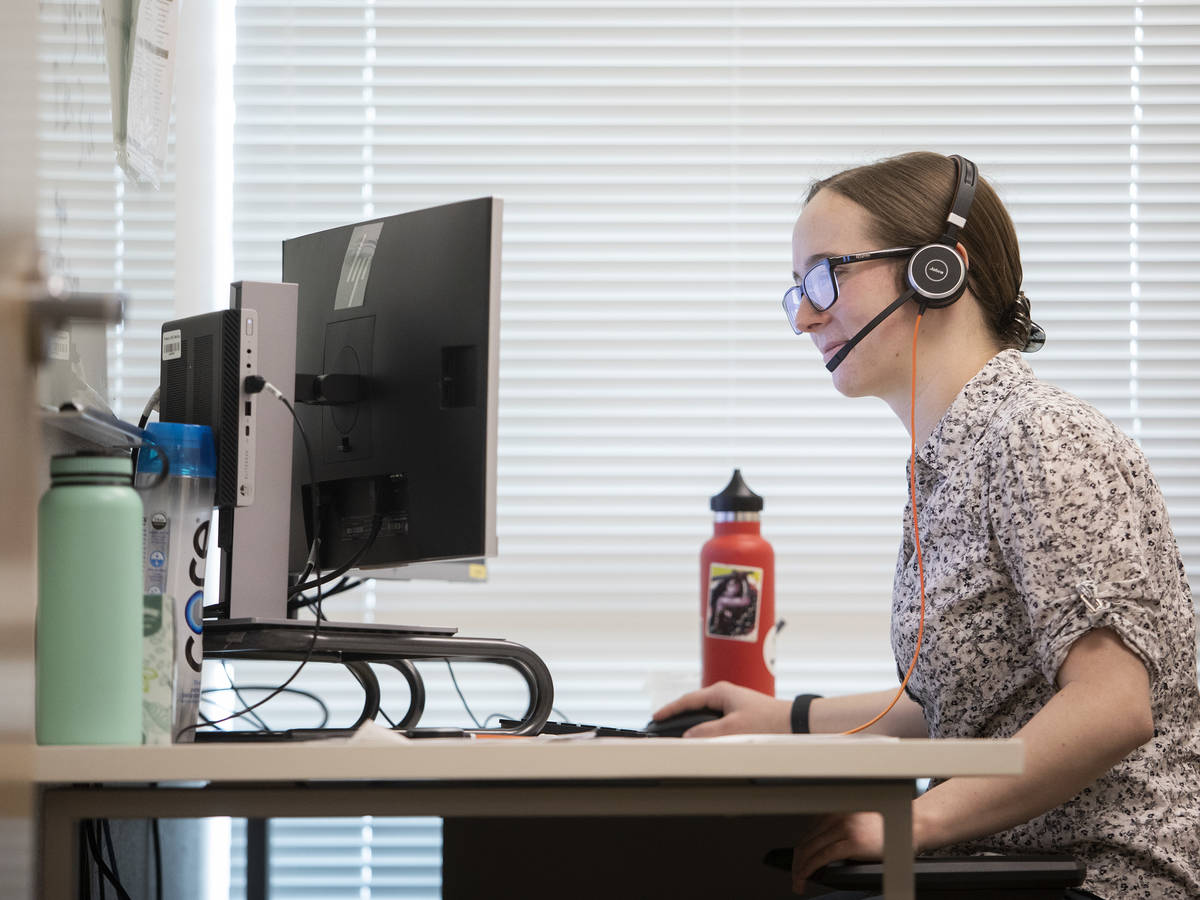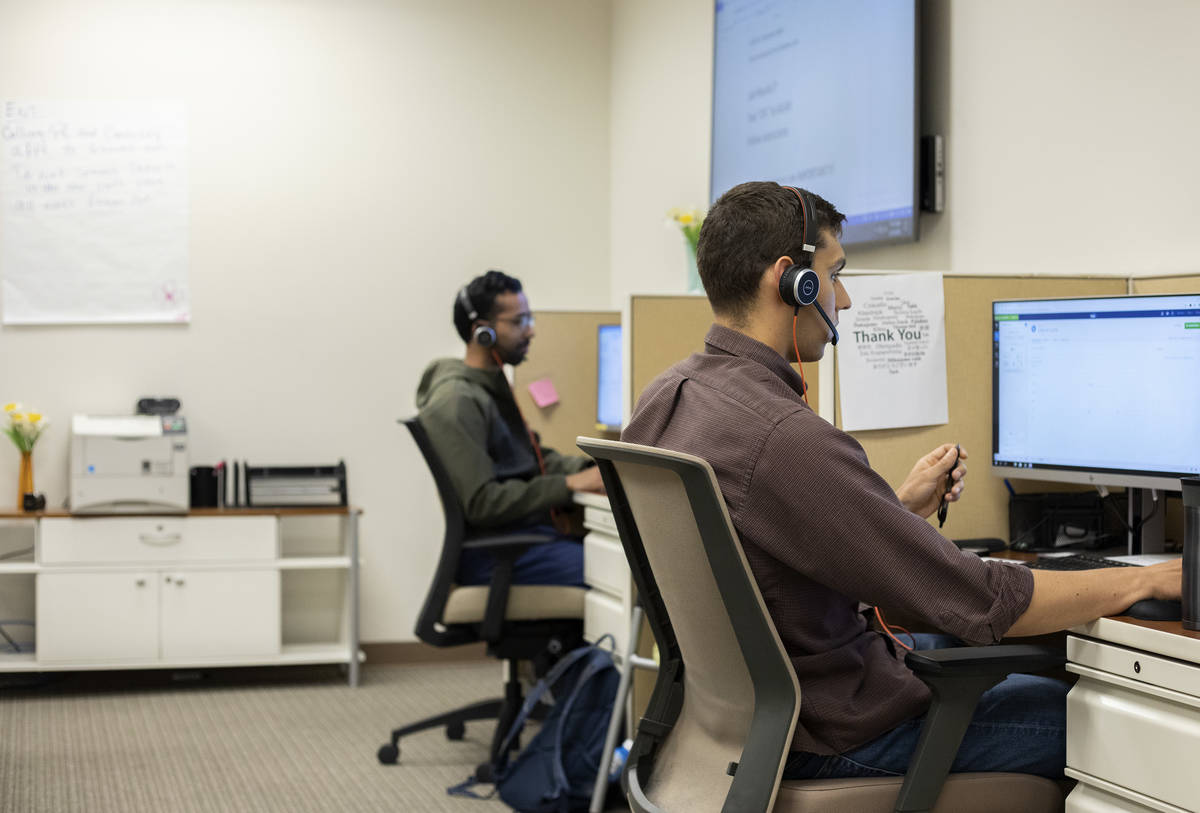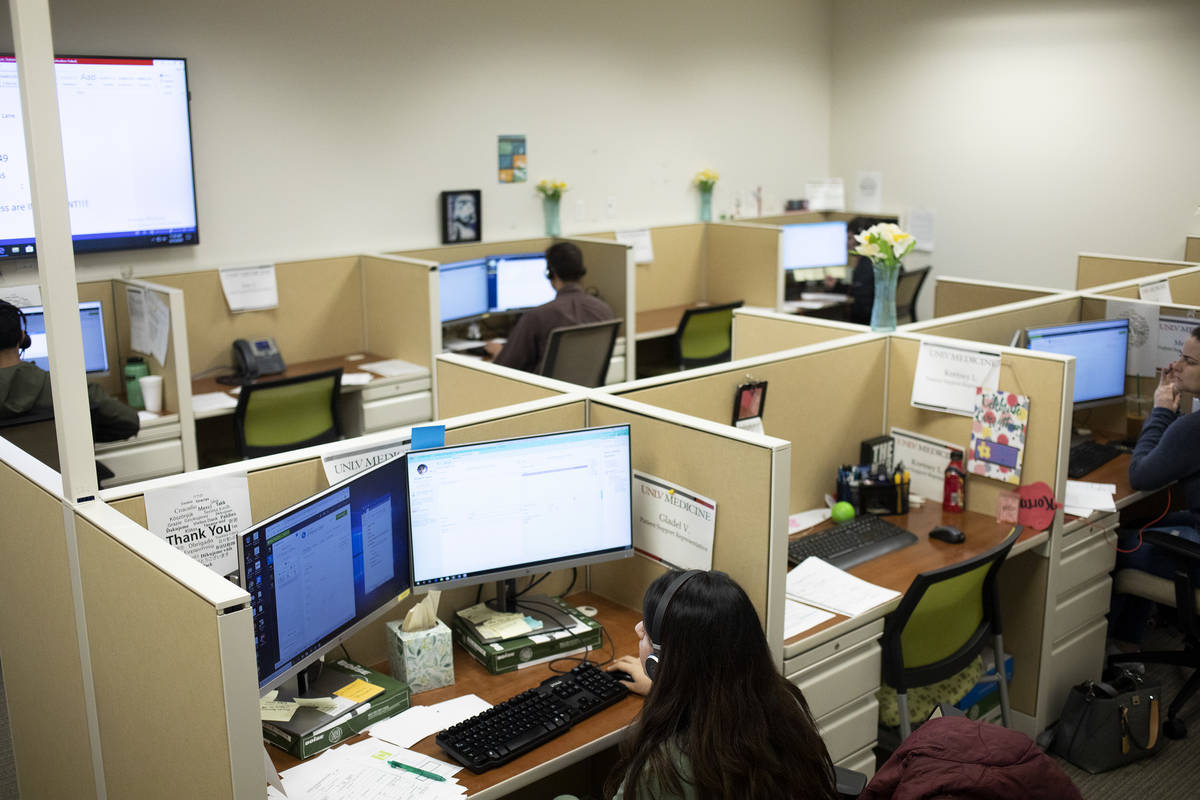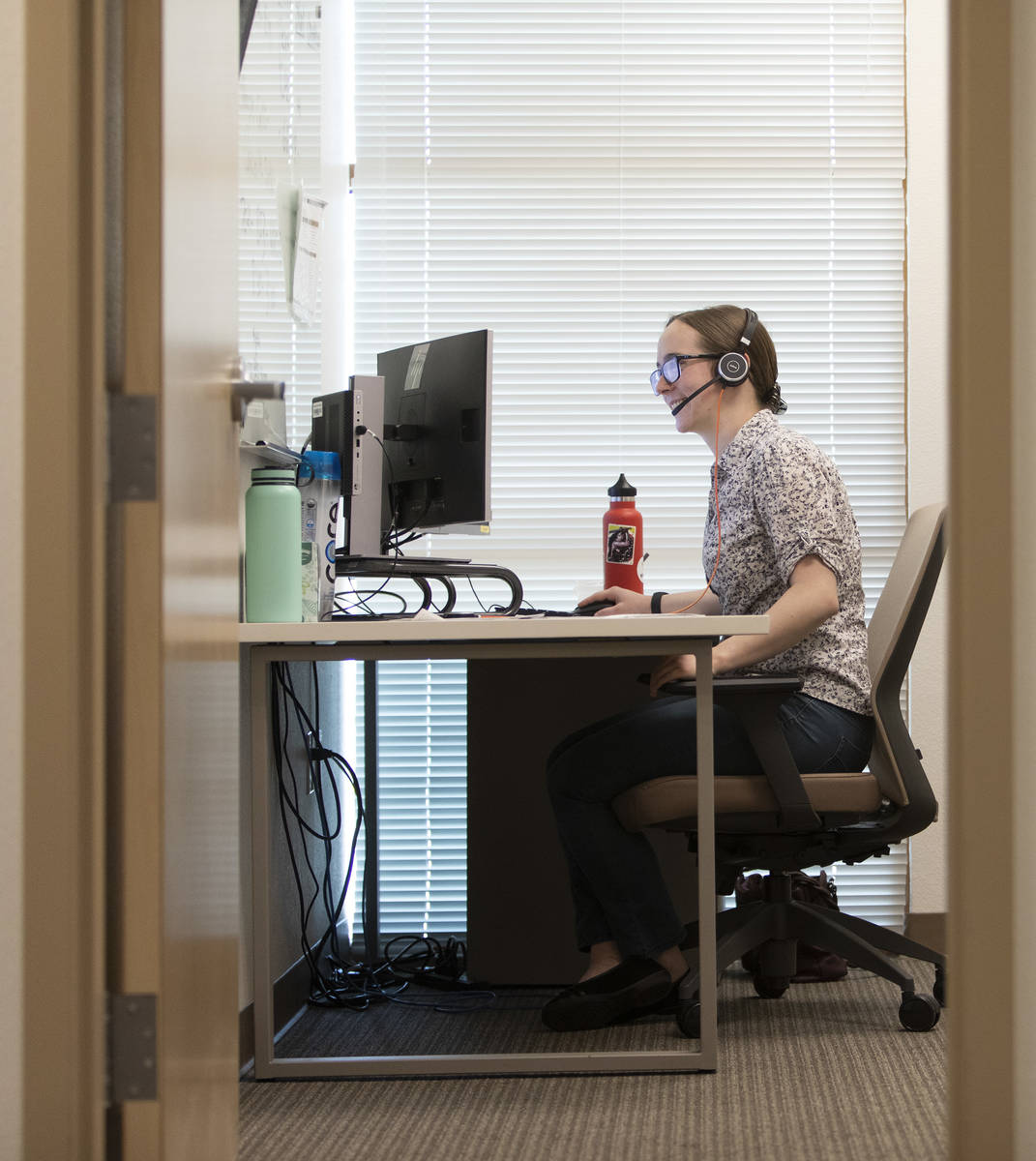Med students help with coronavirus screening, work call center
Medical students in Southern Nevada have taken on the work of screening potential cases of COVID-19 at a Las Vegas shelter in order to free up doctors and nurses to work with patients.
In a trial-by-fire beginning to their careers, volunteers from Touro University are working daily at the temporary homeless shelter in the parking lot of Cashman Field to screen arrivals for symptoms, while UNLV students are fielding up to 3,000 calls per day at a call center for the school’s curbside testing service.
For UNLV students Lauren Hollifield and Damien Medrano, the coronavirus outbreak came in the midst of their third-year exams, which are now on an indefinite hold. When UNLV started its curbside testing service, the school asked students to volunteer to take calls from the general public and screen them for symptoms of the disease, such as cough, fever and trouble breathing.
“For us, it was an easy decision to say yes,” Hollifield said. “It’s a scary time for a lot of people, and if we can lessen their fears, we’ll do that.”
Hollifield said that she’s taken 250 calls over two shifts at the UNLV call center and plans to go back for more this week. She said that while scheduling testing for callers who meet the testing criteria is an important part of the job, she’s also found that people call just looking for answers to their fears and anxieties about the virus. She said she spent over an hour with one caller in order to ease the person’s fears.
“They want to know are they safe to go to the grocery store or to take a walk outside,” Hollifield said. “I think after talking through her anxieties, she felt more comfortable knowing more about the virus, and speaking to someone rather than seeing it on a TV screen.”
Medrano said that while callers have ranged in age, one surprising commonality some of them have shared is that they work in the medical field.
“You feel for them as a medical student, working in a hospital taking care of patients who might have had symptoms,” Medrano said, pointing out the potential for burnout among doctors and nurses. “It hits close to home.”
Medrano and Hollifield said any weariness they might experience themselves after fielding calls is manageable.
“Any fatigue we might feel is nothing compared to what the front-line workers are going through,” Hollifield said.
Matthew Stein, a fourth-year student at Touro, was in his third week of a clinical rotation focusing on infectious disease when the hospital sent all nonessential personnel home to curtail the possible spread of coronavirus. He heard about the option to volunteer at Cashman a few weeks later and felt compelled to help.
“You feel a little helpless sitting at home, not being able to do what you’re supposed to be doing,” Stein said.
After medical school, Stein is slated to begin his residency in emergency medicine at the Naval Medical Center San Diego, where he said he acknowledges he might be either on the front lines of another wave of the pandemic or working with non-coronavirus patients who will need medical attention, too.
“I don’t think anyone in the medical field feels prepared,” he said. “But it comes down to manpower and resources.”
Touro will continue to provide volunteers for as long as the Cashman facility remains open, according to a statement from the university.
Touro third-year student Amanda Hertzler said that after she agreed to volunteer, she was asked to be at the Cashman facility within 45 minutes on its first night to conduct basic CDC screening.
In regard to her own health and safety, she said she’s somewhat worried but added that her training in protective equipment and sanitation feels second nature now.
Hertzler said she and her cohort were just finishing their clinical rotations when the rotations were suspended. The crisis, she said, has motivated her to finish her education as soon as possible to be able to step in and help.
“We’ve just been at home, antsy, because we can’t help,” Hertzler said. “We all go to medical school to be able to prepare for something like this, and when we get pulled off the front lines, it can be frustrating, even if we understand why.
“It’s nice at my level of education to finally be able to help in some small way.”
Contact Aleksandra Appleton at 702-383-0218 or aappleton@reviewjournal.com. Follow @aleksappleton on Twitter.

















































